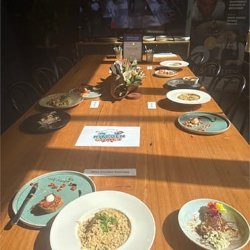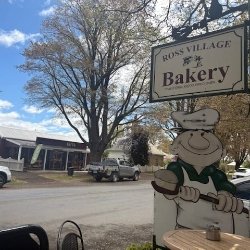I hadn't spent a really good long time in the sun for months, so the other day I went to the sitio that belongs to a relative of my husband for the day.


A sitio is a small farm of between five and 40 alqueires. The alqueire is the unit used for the area of farmland here, and one alqueire is equivalent to 24,200 square meters.
Many of the Japanese immigrants who came to Brazil worked on coffee plantations before acquiring farmland and becoming independent farmers, while others pooled their funds, purchased farmland, and formed farming cooperatives. It’s small farms like this that are called sitios. The Japanese immigrants grew vegetables and fruits on sitios and developed better quality agricultural products that suited Brazil’s soils and climate. You could say it’s thanks to the efforts of these Japanese immigrants that many different kinds of vegetables and fruits are available in Brazil now. Some typical examples are sweet persimmons, ponkans (Citrus reticulate Blanco), Italian grapes, and Fuji apples.
The sitio I went to visit is about an hour's drive from São Paulo. This sitio is the land my husband's grandfather and grandmother obtained. They raised a lot of children all those years ago as they made a living out of growing different kinds of vegetables and selling them. After the children became independent, they built a house in the city and started using the sitio as a holiday house where the family spent their time together on weekends.
While my grandmother was alive, she never stopped growing all sorts of vegetables. Myoga (Japanese ginger), kampyo (dried gourd shavings), mugwort, soybeans, bamboo shoots, kale, pomegranate, avocado, mikan (Citrus unshiu), etc. The sitio also has a lot of persimmon trees, and the fun thing to do in April was to pick persimmons, so there were huge family gatherings.
Surrounded by eucalyptus and pine trees, the country landscape around the sitio is relaxing. You can see various shades of green, the air is good, and the sun shines more brightly.
The sitio also has some cherry trees, and every year they bloom in vivid colors.


After grandmother died, there was no longer anyone to look after the vegetables, and gradually they dwindled away. Fewer family members go to the sitio now, but the country feeling hasn’t changed at all, and we can still have a really relaxing time there. A Brazilian family lives at the sitio now and they take care of the property, cleaning the house, looking after the lawn, and so on.
Although you call small farms sitios, most of the people who own one live in the city now, and many only seem to spend time at their sitio on the weekend. Now sitios are places to relax in nature, so while some might keep horses, others might have a pond and they fish.
Of course, some people still make a living on their sitio as small farms, like before.
Living in the city with this pandemic means I spend most of my time out of the sunshine, so the day I spent at the sitio was just the best.




















































